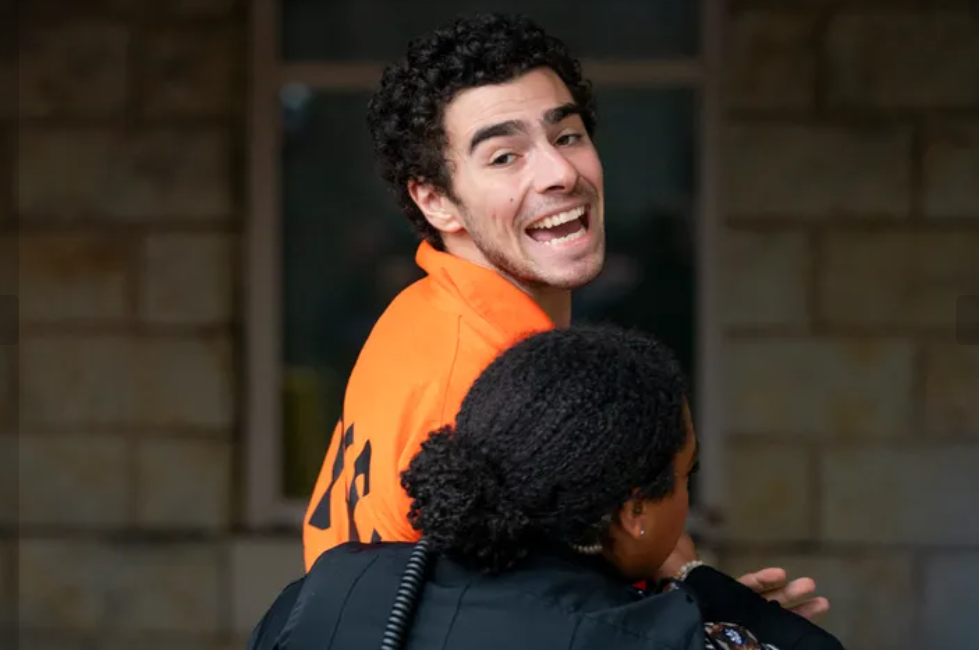Luigi Mangione: The Case That Shocked the U.S. with the Murder of UnitedHealthcare’s CEO
By Maya Carter |

Motivations, Context, and the Implications of a Crime That Sparked National Debate
The Crime That Shook the Nation
Luigi Mangione, a 26-year-old from a wealthy Maryland real estate family and a graduate of an Ivy League university, has become the focal point of a murder case that has captured nationwide attention. Accused of killing Brian Thompson, the CEO of UnitedHealthcare, Mangione’s actions appear to have been fueled by deep frustration with the American healthcare system and corporate greed, which he believed oppressed millions of people.
The Incident and Arrest
The crime took place in Manhattan on a Wednesday morning. Brian Thompson was fatally shot, and five days later, Luigi Mangione was apprehended at a McDonald’s in Pennsylvania. His arrest was made possible thanks to an alert employee who recognized him from wanted posters.
When taken into custody, Mangione was found carrying a 3D-printed firearm, forged documents, and approximately $8,000 in cash. In his initial court appearance, he claimed he did not know the origin of the money and suggested it might have been planted to incriminate him.
Motivations: A Declaration of Defiance
Mangione’s actions seem to have been driven by a profound discontent with the U.S. healthcare industry. In a handwritten manifesto found in his possession, he described the industry as “rotten and corrupt.” He harshly criticized the high prices of health insurance, which he believed left vulnerable populations without access to adequate care.
One chilling detail was the engraving on the bullets used in the crime, which bore the words “deny, defend, depose” — a reference to common tactics employed by insurance companies to deny medical treatments or delay reimbursements.
The manifesto also revealed that Mangione had considered using a bomb but rejected the idea to avoid harming innocent people. He justified his actions as a symbolic fight against a corrupt system, seeing himself as the “first to confront it with brutal honesty.”
Legal Proceedings
Mangione faces multiple charges, including first-degree murder, illegal possession of a firearm, and possession of forged documents. During his initial hearing in Pennsylvania, he fiercely contested the accusations, alleging that he was a victim of a conspiracy to discredit him.
His attorney, Thomas Dickey, has announced that Mangione will fight extradition to New York, where he is expected to face formal charges.
Mangione’s Background: Privileged but Troubled
Despite his privileged upbringing and elite education, Mangione’s life was not without challenges. He suffered from spondylolisthesis, a condition that causes severe back pain, and had recently undergone surgery. Friends described him as intelligent and seemingly normal but noted that he had become increasingly isolated in the months leading up to the crime.
Glamourization and a Societal Wake-Up Call
The case has not only sparked outrage but also a troubling phenomenon of glamorization. The jacket Mangione wore during the crime has sold out online, and he has garnered a growing fan base on social media, with some seeing him as a rebellious or even heroic figure.
This trend highlights a concerning aspect of contemporary society, where serious crimes and controversial figures are often romanticized, particularly on digital platforms. Experts warn that this glamorization risks overshadowing the critical issues at the heart of the case, such as systemic flaws in healthcare and societal alienation. It also trivializes acts of violence, creating a dangerous narrative.
Public Reaction and Industry Impact
The case has reignited a national conversation, bringing renewed criticism to the U.S. healthcare system. High rejection rates for medical treatments by insurers, coupled with exorbitant costs, have once again been thrust into the spotlight.
Additionally, the New York Police Department issued warnings to high-ranking healthcare executives, fearing Mangione’s act could inspire copycat crimes. Posters featuring prominent industry leaders were distributed as a preventive measure.
Mangione’s family, shocked and devastated by the incident, issued a public statement offering prayers for Brian Thompson’s family and Luigi himself, asking for prayers for all involved during this difficult time.
A Broader Reflection
This case is not merely about a shocking crime but also serves as an indictment of a healthcare system often criticized for prioritizing profits over lives. Recent statistics reveal that one in four Latinos in the U.S. lacked health insurance in 2022, further exposing the system’s accessibility issues.
The glamorization of Luigi Mangione, coupled with the profound impact of his actions on a vital industry, should serve as a wake-up call. It is essential to reflect on the values being prioritized in society and the role each individual plays in demanding structural and ethical changes.
Maya Carter




